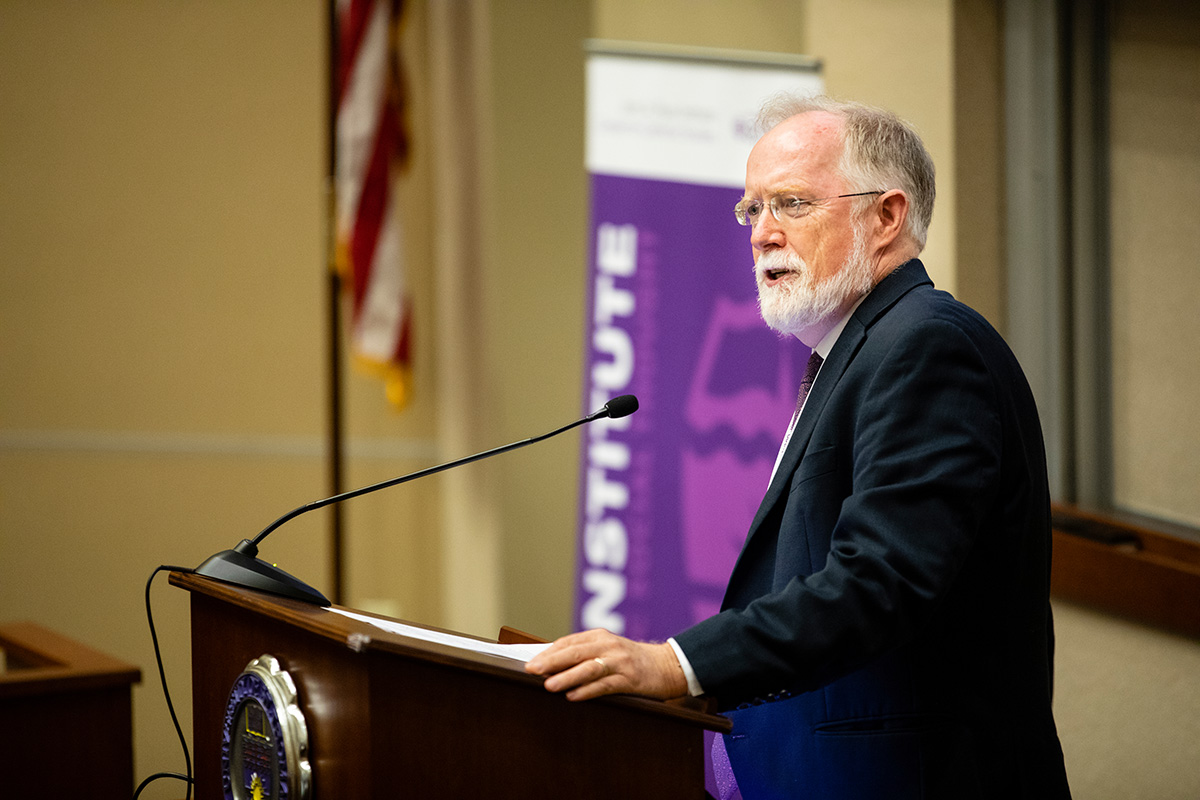Admission Deadlines
We admit on a rolling basis for our fall, spring, and summer terms.
- Priority Fall (Scholarship) Deadline: March 1
- Final Fall Deadline: August 15
- Spring Deadline: January 15
- Summer Deadline: June 1
Many educators start their graduate studies with our blended Two-Course Study which is offered in the summer. Both courses are designed to help teachers and administrators learn how to cultivate the Catholic identity and culture of their school. The courses can stand alone or be a first step on the way towards the Graduate Certificate in Mission and Culture of Catholic Education and the MA in Catholic Studies.
The heart of any culture, as well as its continuity, can be found in its educational tradition, the distillation for the next generation of its highest ideals and most important truths. For the West this began with the Greeks, who set in place, some five centuries before Christ, the main aspects of a tradition that lasted, with significant developments, up until very recent times.
This course will trace that tradition, using both primary and secondary source material, and will include: its origins in fifth- century BC Greece; its universalization during the Hellenistic period; its encounter with Christianity in the Patristic era; its Christian instantiation under the Carolingian Empire; the great Medieval educational synthesis and the rise of the University; the development of Renaissance humanism and the Ratio Studiorum of the Jesuits; Newman's classic expression of the tradition in The Idea of a University; and the great challenge to that tradition and change that has taken place during the nineteenth and twentieth centuries.
This is a hyflex course. Students can choose to attend a class session in person or they can participate online synchronously or asynchronously.
This course explores the history, philosophy, and theology of PreK-12 Catholic education in the United States over the past 100 years. The course aims to help students understand the challenges PreK-12 Catholic schools face with respect to their mission and culture. Students will be exposed to the philosophical and theological foundations upon which Catholic schools have been built, the changes within church and society that have affected Catholic PreK-12 education, and the future of Catholic PreK-12 education. Discussions and assignments will focus on creative solutions to mission and culture challenges facing Catholic schools today.
This is a coflex course. Students can choose to attend a class session in person or they can participate online synchronously.
The heart of any culture, as well as its continuity, can be found in its educational tradition, the distillation for the next generation of its highest ideals and most important truths. For the West this began with the Greeks, who set in place, some five centuries before Christ, the main aspects of a tradition that lasted, with significant developments, up until very recent times.
This course will trace that tradition, using both primary and secondary source material, and will include: its origins in fifth- century BC Greece; its universalization during the Hellenistic period; its encounter with Christianity in the Patristic era; its Christian instantiation under the Carolingian Empire; the great Medieval educational synthesis and the rise of the University; the development of Renaissance humanism and the Ratio Studiorum of the Jesuits; Newman's classic expression of the tradition in The Idea of a University; and the great challenge to that tradition and change that has taken place during the nineteenth and twentieth centuries.
This is a hyflex course. Students can choose to attend a class session in person or they can participate online synchronously or asynchronously.
This course explores the history, philosophy, and theology of PreK-12 Catholic education in the United States over the past 100 years. The course aims to help students understand the challenges PreK-12 Catholic schools face with respect to their mission and culture. Students will be exposed to the philosophical and theological foundations upon which Catholic schools have been built, the changes within church and society that have affected Catholic PreK-12 education, and the future of Catholic PreK-12 education. Discussions and assignments will focus on creative solutions to mission and culture challenges facing Catholic schools today.
This is a coflex course. Students can choose to attend a class session in person or they can participate online synchronously.
We admit on a rolling basis for our fall, spring, and summer terms.
The 2024-25 tuition rate is $644 per credit.
This rate applies to all graduate courses, regardless of degree level or program and non-degree enrollment.
See the Estimated Cost of Attendance for CAS Graduate degrees (used to determine your eligibility for Financial Aid)
The Murray Institute at the University of St. Thomas provides qualified parish and Catholic school employees a TUITION-FREE path to a graduate degree!
This scholarship award can be applied toward a Master of Arts in Catholic Studies (33 credits), a Graduate Certificate in Mission & Culture in Catholic Education (18 Credits), or a Two-Course Study in Catholic Education (6 credits).
Requirements:
Thanks to the generosity of Catholic Studies donors, Catholic school educators outside of the Archdiocese of Saint Paul and Minneapolis are eligible for generous tuition scholarship funding.

Our highly regarded instructors have deep and varied academic backgrounds, well suited to serve a diverse group of students in an interdisciplinary program.
Dr. Michael Naughton is the director of the Center for Catholic Studies at the University of St. Thomas. He holds the Koch Chair in Catholic Studies and is a full professor in the department of Catholic Studies. He also taught in the College of Business for more than 20 years.